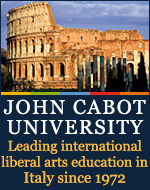
| IIE Home | Membership | Publications | Open Doors | Contact Us | Subscribe |
|
||
|
News
An article in the New York Times reports on how the recent upheavals in the Middle East and northern Africa changed the role of higher education in the region, creating a greater need for engaging with institutions outside the region, standardizing curriculums, and finding alternative sources of financing. In an interview with the reporter at the World Innovation Summit for Education in Qatar, Rajika Bhandari, deputy vice president of research and evaluation at the Institute of International Education, said: "It is likely that the Arab Spring will certainly affect the governance system of higher education, probably in the direction of more independence, participation, and partnerships." The article specifically addresses a research report that IIE produced, with support from Carnegie Corporation of New York and in partnership with the Lebanese Association of Educational Studies (LAES), entitled: "Classifying Higher Education Institutions in the Middle East and North Africa: A Pilot Study." The first of its kind, the two-year study aims to develop a classification model for higher education institutions in the region and features research on 300 higher education institutions in Lebanon, Jordan, Tunisia, Saudi Arabia, Morocco, Qatar, and the United Arab Emirates. "There is no standardized framework for understanding the region’s institutions," Bhandari notes. "Having more comparable information like this will lead to a deeper understanding of the wide range of institutions in the Arab world and how they must be financed and supported." A draft version of the report will be available at www.iie.org/research on November 15, to be followed by a printed version of the final report. To read the full article, please visit: www.nytimes.com/2011/11/07/world/middleeast/arab-spring-spawns-interest-in-improving-quality-of-higher-education.html An article in Inside Higher Ed examines a new report released by the American Council on Education entitled, "Strength through Leadership: U.S. Higher Education in the 21st Century." This report, the result of an 18-month study by college and university presidents, "urges American colleges and universities to be more strategic about how they view international efforts, to recognize that the growth of higher education opportunities in the rest of the world challenges historic U.S. dominance in some areas, and offers a draft set of principles to guide American colleges’ efforts." To read the full article, please visit: www.insidehighered.com/news/2011/11/07/report-urges-colleges-be-more-strategic-international-ties#ixzz1d3C3Z0c3 For its Fall 2011 issue on innovation in international education, the IIENetworker staff interviewed Dr. Ángel Cabrera, president of Thunderbird School of Global Management. Dr. Cabrera is a world-renowned global leader and management educator whose work and expertise has been recognized and tapped by top international organizations. The World Economic Forum named Dr. Cabrera a "Global Leader for Tomorrow" in 2002 and chairman of the Global Agenda Council for promoting entrepreneurship in 2008. In 2007, the United Nations asked him to chair the international taskforce that developed the "Principles for Responsible Management Education," a voluntary framework to promote global corporate citizenship. In the interview, Dr. Cabrera talks about the role that business education plays in educating global citizens, how institutions with limited resources can expand access to international opportunities, and how internationalization efforts can serve institutions, faculty, and students. To read the full interview, please visit: www.nxtbook.com/nxtbooks/naylor/IIEB0211/index.php#/14 Universitas 21 has released a position paper entitled: Rethinking International Higher Education Curriculum: Mapping the Research Landscape. It provides an overview of existing approaches to the internationalization of the higher education curriculum and pedagogy; discusses the need to rethink the research and practice of international higher education; and provides alternative curricula and pedagogies. For more information and to download the position paper, please visit: www.universitas21.com/collaboration/details/38/position-paper-on-internationalisation An article in the Chronicle of Higher Education discusses the author’s experience attending and preparing for sessions at the World Innovation Summit for Education in Doha. This summit brought together a wide range of participants from around the globe, mixing those interested in primary and secondary education with those interested in higher education. "Allan E. Goodman, president of the Institute of International Education, the U.S.-based nonprofit organization that is one of the WISE partners, said the conference serves a real need. ‘The higher-education sectors in a lot of countries can be very isolated,’ he said. Conference participants discover that ‘something that can be done in Colombia can also be done in Cambodia.’" To read the full article, please visit: http://chronicle.com/blogs/planet/2011/11/02/preparing-for-a-panel-in-qatar-turns-into-an-intellectual-adventure/?sid=at&utm_source=at&utm_medium=en An op-ed on the Association of International Education Administrator’s (AIEA) website by William B. Lacy, Vice Provost of University Outreach and International Programs at the University of California, Davis, recounts the impact and importance of international exchange programs on the 50th anniversary of the Fulbright-Hays Act, which authorized the Exchange Visitor Program (EVP). As Lacy remarks, the EVP, which is administered by the U.S. Department of State, continues to be relevant by helping to build international bridges, equip students with greater cultural understanding, and provide "opportunities for international participants to experience America and get to know Americans in a diverse range of ways." To read the full op-ed, please visit: www.alliance-exchange.org/policy-monitor/11/04/2011/aiea-op-ed-exchanges-are-important-public-diplomacy-tool-connect-americans Increasing Effectiveness of the Community College Financial Model: A Global Perspective for the Global Economy depicts the challenges and responses of community college financing in an era where funding has declined. The theoretically-based chapters highlight issues of leadership, governance, and financing models for institutional change. The case studies profile success stories from community colleges around the world. Conferences
November 17, 2011, 5:30pm As part of International Education Week, Education in Ireland will host a reception at the Irish Consulate entitled "Celebrating Education Links between Ireland and the USA." The reception will take place on November 17th at 5:30pm in the Irish Consulate General in New York City. As part of the speaking program, the Irish Consulate will include an overview on the importance and role of international education. The event forms part of Education in Ireland’s collaboration with the Irish Embassy in Washington DC and the five Irish Consulates throughout the U.S. in organizing a series of information and promotional events during International Education Week. For information on Education in Ireland, please visit: www.educationinireland.com Deadlines
Deadline for Eary-Bird Discounts: January 1, 2012 The International Fairs of Turkey (IEFT) has opened its registration for the Spring 2012 Fairs. To register for the Fairs, please visit IEFT’s new website (www.ieft.net), click on the "Online register" button, and fill out their online forms. This system also allows you to book your hotels and flights during the fair days. Rather than deal with shipping and customs costs that you may encounter by printing and sending from your home country, IEFT is happy to print any materials that you may need during their fairs in Turkey. Simply send them a PDF file of the materials you need and they will print them and deliver them to your booth during the IEFT Fairs in each city. Contact IEFT at info@ieft.net for pricing information. For a complete listing of the fairs along with discounted "early-bird" rates through January 1st, please visit: www.ieft.net. Or email: info@ieft.net. Partnerships
The Office of the Higher Education Commission (OHEC), Ministry of Education, Thailand, has just released the results of a survey that was conducted to take stock of all Collaborative Degree Programmes between Thai and Foreign Higher Education Institutions, which are counted by level of study, field of study, foreign country, and Thai and foreign partner higher education institutions. The programmes offered are also listed by institution. To download the report, please visit: www.inter.mua.go.th/main2/files/file/collaborative%20degree%20program%202011.pdf |
| www.iie.org/iienetwork • Member website of the Institute of International Education © 2024 Institute of International Education. All rights reserved. |



